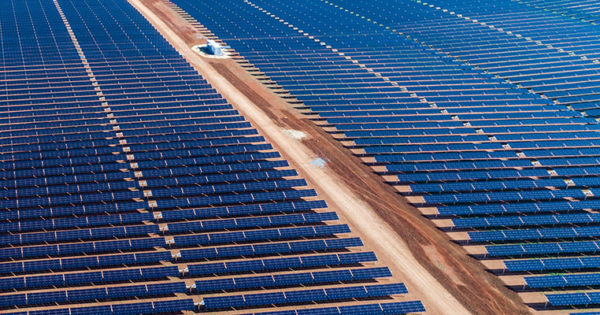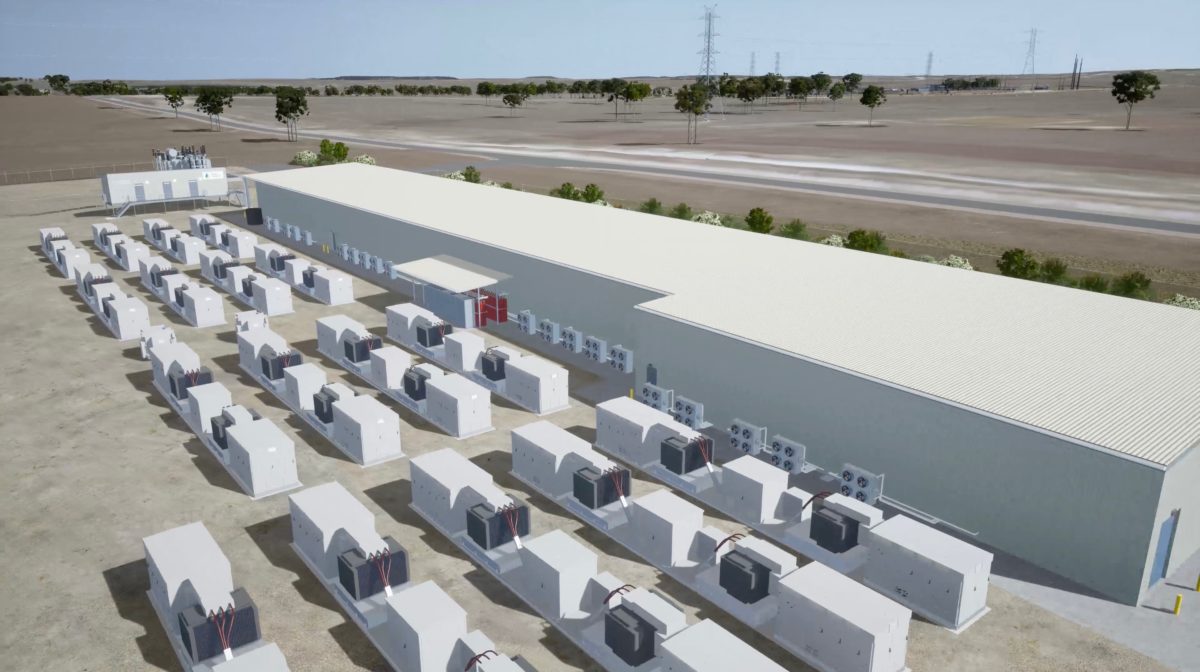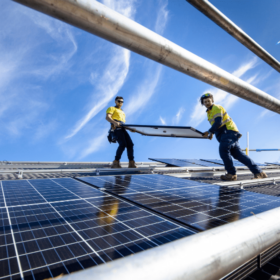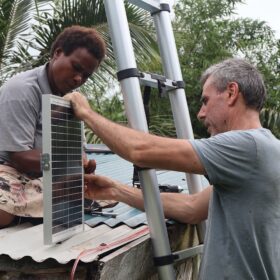The Federal Government has revealed as part of its 2021-22 budget it will plough $30 million into electricity infrastructure projects in the Northern Territory, including $15 million to help build a 35 MW battery energy storage system (BESS) to support the Darwin-to-Katherine grid as more Territorians install solar on their roofs.
The funding announcement also includes $15 million to advance the deployment of renewable energy microgrids in remote Indigenous communities.
The funding boost will build on the Territory Government ‘s own commitments which include $30 million for battery energy storage systems and $69 million to advance the installation of microgrids in remote and regional areas.
The Darwin Big Battery project was first announced in April 2020 with the Territory Government confident the $30 million 35 MW system will help deliver security and reliability with growing levels of variable renewable energy entering the grid.
It is expected the BESS will enable further penetration of solar PV on the network, reduce the reliance on gas-fired generators, shore up system strength and contribute to system inertia.
Government-owned Territory Generation, the major producer of electricity in the Northern Territory, will operate the BESS which is expected to save about $6 million a year by supplying power system services currently provided by gas generators.
Early indications were the battery would be operational in the second half of 2022.
The Darwin Big Battery is among a swag of battery storage systems being rolled out across the Territory with Sun Cable planning to build a mega battery of up to 100 MW in Darwin as part of its proposed 10 GW Australia-ASEAN power link project.
The Australian Renewable Energy Agency (ARENA) is backing the Alice Springs Future Grid project, announced last year, which includes a grid-scale battery system and aggregation of residential batteries into a virtual power plant, while a 5 MW BESS was successfully integrated into Alice Springs’ grid in 2018.

Image: NEW
Minister for Energy and Emissions Reduction Angus Taylor said the funding for the battery and the microgrid projects will help deliver secure and reliable power in the NT, while reducing emissions.
“These projects will provide reliable and secure power for Territorians and deliver affordable energy solutions for remote indigenous communities,” he said.
“We are focused on working with states and territories to ensure their specific energy needs are met and will continue to work closely with our counterparts to ensure all Australians can access the cheap and reliable power, wherever they live.”
Taylor said the latest funding announcement builds on the $50 million Regional and Remote Communities Reliability Fund, which has already awarded over $5.2 million to microgrid feasibility studies across more than 20 locations in the NT.
The Federal Government commitment comes just days after the Territory Government announced it would continue to pursue the rollout of renewable energy solutions in remote communities, building on the $6.6 million Renewable Remote Power Program and the $59 million Solar Energy Transformation Program which have already delivered 10 MW of solar generation to remote communities in the Territory.
Renewables, including solar PV systems, batteries and green hydrogen are set to replace diesel generators in 72 remote communities.
The Territory Government said it will spend $2 million over the next two years securing land access near communities, assessing future power demand, and surveying transmission lines and other infrastructure already on-site.
This content is protected by copyright and may not be reused. If you want to cooperate with us and would like to reuse some of our content, please contact: editors@pv-magazine.com.









By submitting this form you agree to pv magazine using your data for the purposes of publishing your comment.
Your personal data will only be disclosed or otherwise transmitted to third parties for the purposes of spam filtering or if this is necessary for technical maintenance of the website. Any other transfer to third parties will not take place unless this is justified on the basis of applicable data protection regulations or if pv magazine is legally obliged to do so.
You may revoke this consent at any time with effect for the future, in which case your personal data will be deleted immediately. Otherwise, your data will be deleted if pv magazine has processed your request or the purpose of data storage is fulfilled.
Further information on data privacy can be found in our Data Protection Policy.